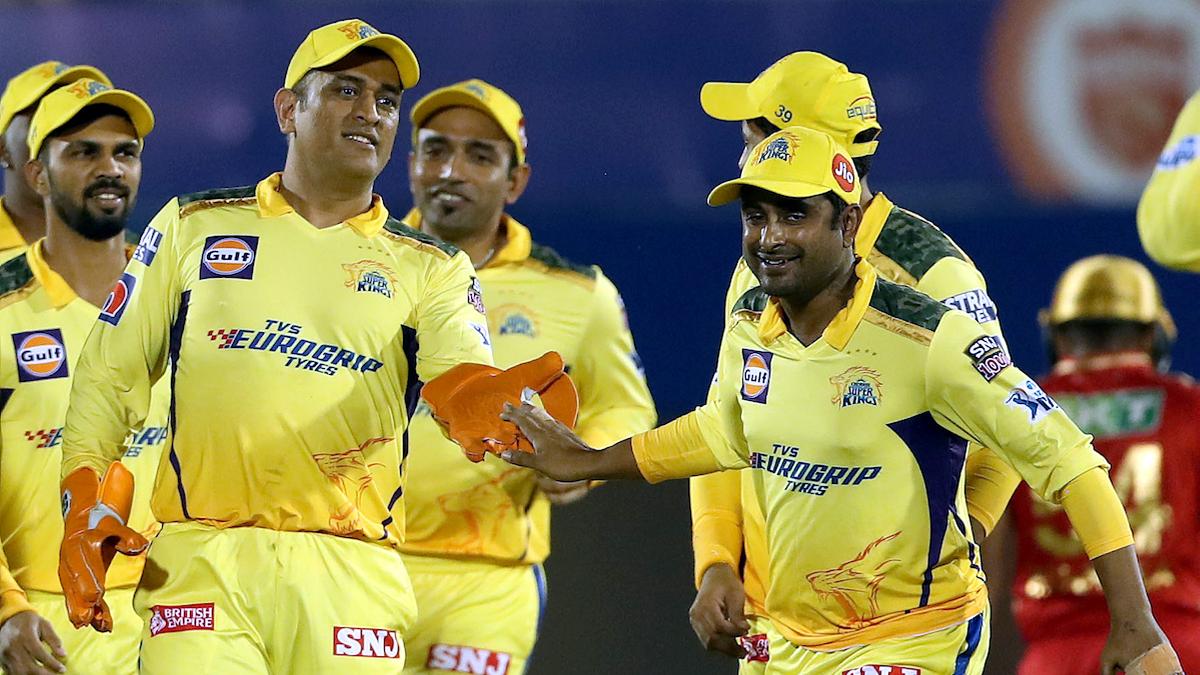Stokes' Record-Breaking Half-Century Secures Series Win for England
England captain Ben Stokes smashed a record-breaking half-century, the fastest for his country in Tests, as England defeated the West Indies at Edgbaston to secure a 3-0 series win.
In the ever-evolving landscape of cricket, the dynamics of captaincy hold a special place, not just in the hearts of fans but also within the team itself.
The recent transition in leadership within the Chennai Super Kings (CSK) has sparked intrigue and debate among cricket enthusiasts. With MS Dhoni passing on the mantle to Ruturaj Gaikwad, a shift in on-field decision-making was anticipated. However, amidst this transition, a certain level of ambiguity has emerged, as highlighted by fast bowler Deepak Chahar's recent remarks.

The scene that unfolded during CSK's encounters against Royal Challengers Bengaluru and Gujarat Titans, where Dhoni was seen actively involved in setting the field despite Gaikwad officially assuming the captaincy, raised eyebrows and prompted discussions. The question on everyone's mind was clear: Who exactly holds the reins of leadership on the field?
Chahar's statement, albeit laced with humor, shed light on the underlying confusion within the team regarding field placements and tactical decisions. In admitting to looking towards both Dhoni and Gaikwad for instructions, Chahar inadvertently exposed the complexities of transitioning leadership and the challenges associated with it.
The significance of this transition cannot be overstated, especially considering CSK's history and Dhoni's iconic legacy as captain. From leading the team to multiple IPL titles to being hailed as one of the greatest captains in cricketing history, Dhoni's influence on CSK is unparalleled. Therefore, any alteration in the traditional hierarchy naturally invites scrutiny and speculation.
The decision to hand over the captaincy to Gaikwad reflects the team management's strategic vision and long-term planning. Gaikwad, a talented batsman with immense potential, represents the next generation of CSK leadership. However, the transition process is rarely seamless, as evidenced by the lingering ambiguity surrounding leadership roles on the field.
One cannot ignore the parallels drawn with CSK's previous experiment with leadership transition when Ravindra Jadeja was appointed captain, only to relinquish the role later. The specter of past failures looms large, adding pressure to Gaikwad's fledgling captaincy stint.
Amidst the scrutiny and speculation, it's crucial for CSK to maintain clarity and unity within the team. Effective communication and alignment between Dhoni, Gaikwad, and the coaching staff are paramount to navigate through this period of transition successfully. While Dhoni's presence and experience continue to be invaluable assets to the team, it's imperative for Gaikwad to assert his authority and stamp his leadership style on the team.
Ultimately, the success of CSK's captaincy transition lies in the team's ability to adapt, evolve, and perform on the field. As the IPL season unfolds, all eyes will be on Gaikwad and Dhoni, not just as players but also as symbols of leadership and legacy. In this tale of transition and transformation, CSK's journey promises to be as intriguing as ever, with every match offering new insights into the dynamics of leadership in cricket's most celebrated franchise.
England captain Ben Stokes smashed a record-breaking half-century, the fastest for his country in Tests, as England defeated the West Indies at Edgbaston to secure a 3-0 series win.
England's T20 World Cup campaign got a significant boost with a commanding 8-wicket victory over the West Indies.
Bangladesh’s fast bowler, Tanzim Hasan Sakib, faced disciplinary action for a misconduct incident during the ICC Men’s T20 World Cup 2024.
